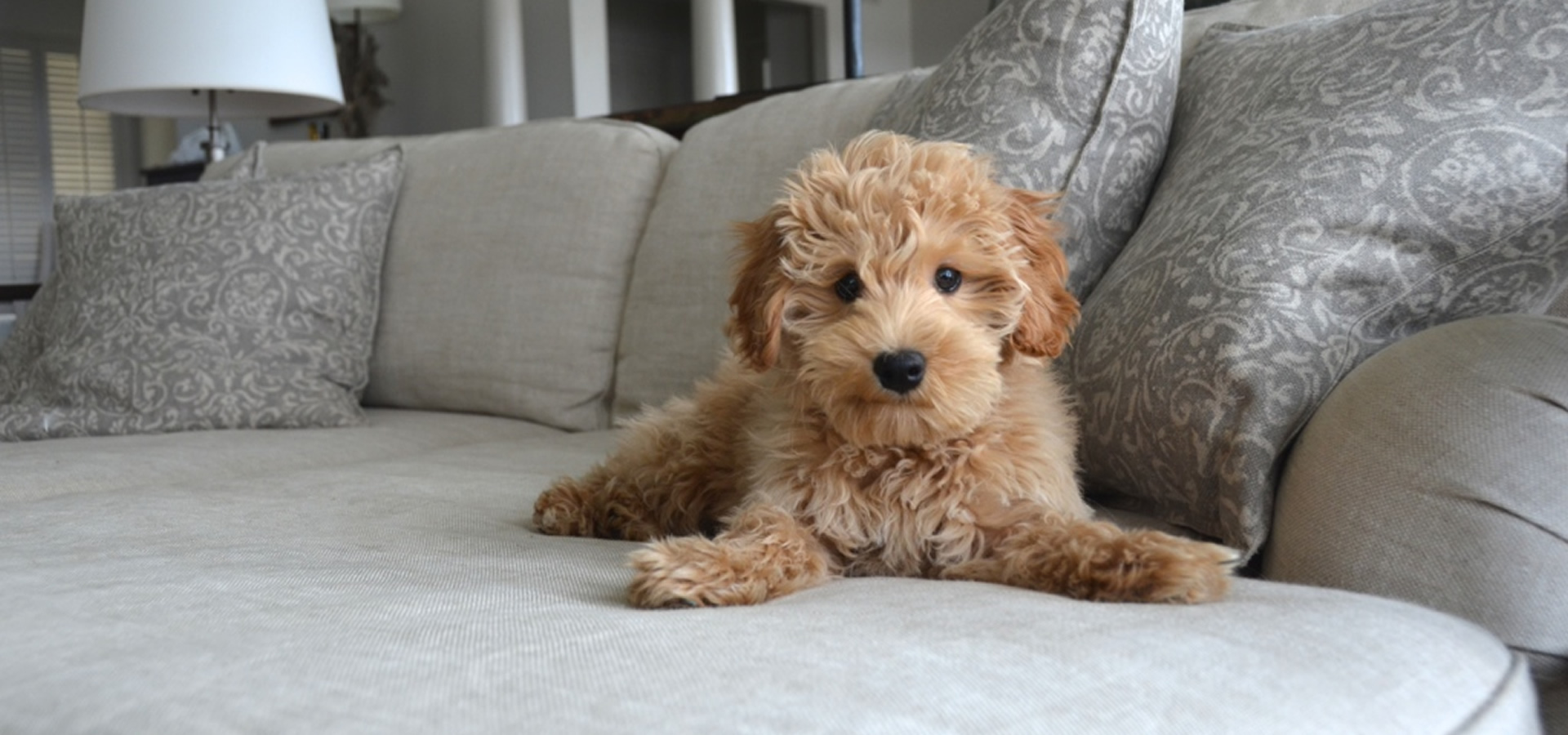
Should You Let Sleeping Dogs Lie…In Bed With You? It It Problem?
I get the distinct impression that most people think dog trainers believe dogs shouldn’t sleep in bed with their people. However, most of my dog trainer friends are like the approximately 62% of the pet parent population (according to a survey by the American Pet Products Manufacturers Association) and spend their nights finding a comfy spot to snuggle in between their animals. In fact, one has five dogs and each one fits on her queen-sized bed. It’s a bit like a dog jigsaw puzzle. While this probably doesn’t bode well for her being able to stretch out, she looks well rested to me, and her dogs do not suffer from any misconceptions about what sleeping in the family bed means. This is a good example that sleeping in your bed will not necessarily be detrimental to your dog’s overall behavior. But, when deciding if you should snuggle up at night with your canine, there are some things to consider to ensure the arrangement adds to the overall relationship.
Domination and dog in bed
There are those who suggest that allowing a dog to sleep in bed will result in a loss of dominant status. All this dominance talk is supposedly based on wolf behavior. Unfortunately, the dynamics of the social structure of wolf packs is often misunderstood and misapplied to our life with dogs. In a very small nutshell, the social structure of wolves is one based on a strong inclination to cooperate in order for the pack as a whole to survive. Wolves tend to be quite skilled at figuring out how to best work and live together. So, if you choose to base your relationship with your dog in part of wolf pack structure, then focus on their superb cooperation skills. In regards to possibly allowing your dog to sleep in bed with you, it is most important to make an honest assessement of your dog’s behavior and the degree to which your dog cooperates and responds reliably to your requests.
If your dog has aggression issues of any sort with people, then it is best to not allow them onto the bed (at least for the time being) as sleeping in bed may very well exacerbate an existing problem. It is also advisable to contact a qualified professional immediately to help manage the situation. Likewise, if your dog is suffering from separation anxiety, allowing them to share the bed with you may not be wise. They need your help to learn to self-pacify and spend time calmly and quietly alone. Part of helping your dog develop this skill is based on them first being able to rest when you are home without being right next to you. Sleeping curled up next to you throughout the night is likely to add to their dependence on you and make it more difficult for them to cope with your absence during the day. In this case, teach your dog to rest quietly on a dog bed or crate next to your bed by having them do so first for short periods of time throughout the day and in different spots around your home.

How to solve problems with a dog sleeping in a bed?
If your dog is free of aggression and separation issues, consider how mannerly and cooperative they are. That is, does your dog sit, lie down, come when called, and get off the bed or couch when you ask? Does your dog exhibit good impulse control skills and refrain from grabbing things from people’s hands or off table tops? If so, then (like in a wolf pack where cooperation equals access to more privileges) it is an indication that your dog probably has a pretty solid understanding about the cooperative nature of the canine/human relationship. This does not mean you have to share your bed with a well mannered dog. But, if you want to it should be just fine to add bed privileges to the list of things your dog earns from you by following your instructions.
Just as you should ask your dog to sit, lie down, or do something else you have taught them in order to earn what they want (attention, food, toys, walking through the front door, etc.), being invited up on the bed can be a valuable reward to further strengthen good manners. So, rather than allowing your dog to jump on the bed when the fancy strikes, teach your dog to wait for an invitation from you. The price of admission can be as inexpensive as sitting or lying down when asked. Look at the bed as leverage for helping your dog to become or continue to be a most mannerly canine. If your dog has gotten into the habit of racing to the bed and leaping on board, then attach a 6 foot leash to the collar during 3-5 minute training sessions as a way of having a gentle management tool to prevent univited entry. This is sort of like a nightclub putting up a thin, velvet rope. It doesn’t indicate you can’t come in, but you have to stop and ask the doorman for permission to enter. Anyone who has been to a nightclub knows that often times those people who are pushy and unpleasant are turned away. It doesn’t mean they can’t ever join in on the fun. But, they need to follow the rules, and so does your dog.
During the day, practice having your dog sit next to the bed and then invite him up. After a moment or two, ask him to jump off the bed (use a pet step or foot stool if the bed is too high for your dog to safely jump off) and be prepared to offer encouragement as he is learning this skill. When he gets off, offer praise, a treat and/or a favorite toy. If he doesn’t get off, use the leash to gently encourage him and see this as your dog’s way of telling you that more practice sessions are required prior to night time bed privileges. You might also try teaching your dog to hand target on the ground and around distractions and then use this as a tool for giving your dog a specific point to move to (i.e. your hand off the bed) when you want them to get off.

Some other practical concerns include the fact that inviting your dog into your bed after a walk means they may bring a good bit of dirt and debris with them. A quick, gentle brushing and wipe of their pads will help to control this. Some people also have a special towel or blanket they place on a section of the bed as their dog’s special spot. Also, if you are a light sleeper, consider what impact your dog’s presence in the bed might have on you getting a good nights sleep. Some dogs pick a spot and doze off for the night. Others like to move about and frequently reposition themselves.
Studies show that sharing our lives with dogs can decrease stress, and improve our mood and the overall quality of our lives. For me, inviting my mannerly dogs up for a snuggle or a snooze has loads of benefits. I find that I feel more relaxed and safer with them there, they provide added warmth on cool nights, and their peaceful breathing acts as a sort of lullaby and signal that it is time for me to turn off the lights. All of this results in a better night’s sleep so I am less likely to be dog tired the next day.
This post has 2 comments
Leave a Reply Cancel reply
Dog training from the experts
Educate your dog with Andrea Arden and her team.
New York | Los Angeles | Connecticut
Share
- Group Classes
- Private Lessons
- Virtual Training
- Puppy Play Groups
- Puppy Training
- Articles & Advice


Pingback: Should My Dog Be Allowed to Sleep With Me? – Pet Radio Magazine
Pingback: Me and my shadow: how to treat separation anxiety in dogs